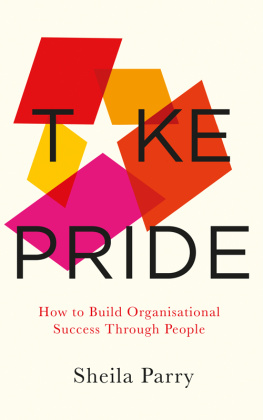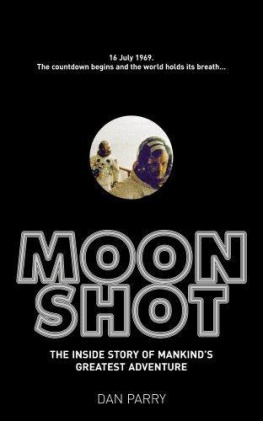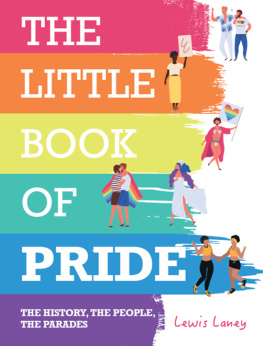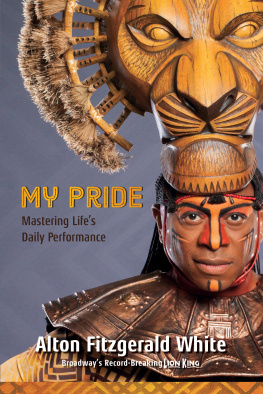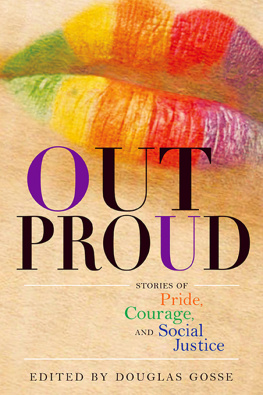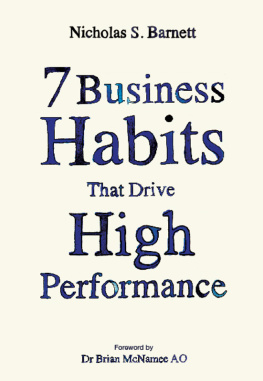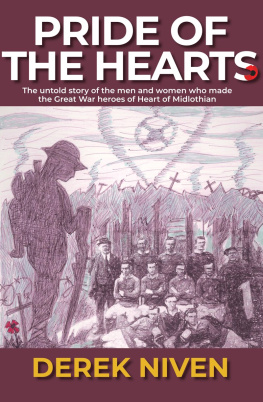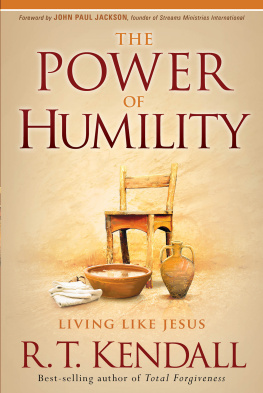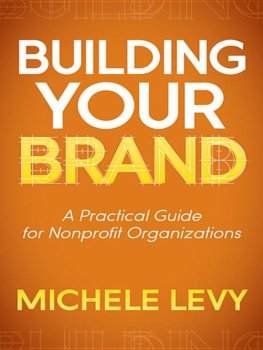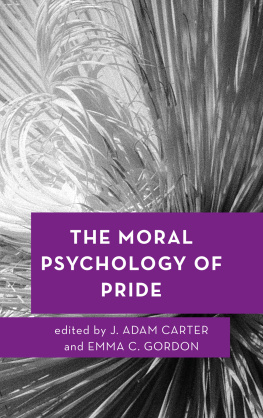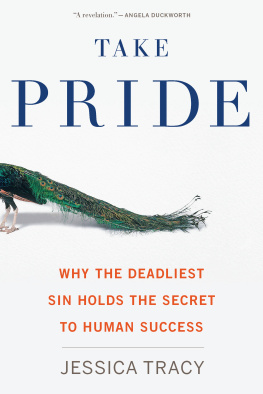
To Robyn, David and Mark,
and the next generation of people at work
Dear Reader,
The book you are holding came about in a rather different way to most others. It was funded directly by readers through a new website: Unbound. Unbound is the creation of three writers. We started the company because we believed there had to be a better deal for both writers and readers. On the Unbound website, authors share the ideas for the books they want to write directly with readers. If enough of you support the book by pledging for it in advance, we produce a beautifully bound special subscribers edition and distribute a regular edition and ebook wherever books are sold, in shops and online.
This new way of publishing is actually a very old idea (Samuel Johnson funded his dictionary this way). Were just using the internet to build each writer a network of patrons. At the back of this book, youll find the names of all the people who made it happen.
Publishing in this way means readers are no longer just passive consumers of the books they buy, and authors are free to write the books they really want. They get a much fairer return too half the profits their books generate, rather than a tiny percentage of the cover price.
If youre not yet a subscriber, we hope that youll want to join our publishing revolution and have your name listed in one of our books in the future. To get you started, here is a 5 discount on your first pledge. Just visit unbound.com , make your pledge and type take5 in the promo code box when you check out.
Thank you for your support,

Dan, Justin and John
Founders, Unbound
Contents
Introduction:
The PRIDE Concept
Ask anyone you know what makes them feel proud. Guaranteed, their eyes will light up, they will express something with passion and you will witness a surge of emotion. Its a great question to ask, because it brings out a positive expression of warmth that makes people feel good about themselves or others. Talking about people or occasions that evoke pride reinforces positivity and a sense of achievement. Moments of pride make for strong, potentially bonding memories that people want to share with others.
Take Pride will show you how to create those positive emotions in the workplace, for yourself and for people who work for you.
There is a compelling business case for pride at work pride in oneself and in ones organisation leads to better personal and collective performance. People with pride will make more effort, make better decisions, forge better relationships with their customers, and exert more positive influence on their colleagues. They will also take more care of their own and their organisations reputation. People with pride are generally happier and healthier. They are more confident in their own abilities, are more fulfilled, and are less likely to suffer from stress.
Take Pride is for leaders and influencers who want work to be a great place for the majority, not the minority, and who are looking for a fresh approach to make it happen.
This book sets out the PRIDE business model, which through generating Purpose, Reputation, Integrity, Direction and Energy at work will create the environment where people respect each other, understand and share goals, want to contribute and know that they are valued. In building personal and professional pride, the model will drive performance and make people and the organisations they work for more successful.
The PRIDE approach has wider consequences for our economic performance. The need for fulfilling work is universal, and yet in the UK only one in three people is actively engaged in what they do. More than that, another one in four is actively disengaged, a trend that can only deplete national productivity and output. The remaining millions of people who lean neither one way nor the other represent a mass of potential energy and productive effort that is currently going to waste. While most organisations talk about the importance of employee motivation, few of them adopt clear strategies to achieve it. This picture is not unique to the UK.
This book explores what makes us feel pride, why it matters, and how to create the conditions in the workplace that make people proud of who they are and what they do. Part philosophy, part methodology, it has the potential to move people management in the workplace from poor to average, and then from average to a good performance on a massive scale.
Good job, bad job. Know the difference
I have worked with some of the worlds largest companies and best-known brands, helping them achieve greater engagement, performance and success through their people. I have worked with charismatic leaders and inclusive managers who have created energetic and positive cultures in the workplace. As an employer myself, I have applied best practice in my own communications agency, and I have first-hand experience of building a positive culture, where people are proud to work.
On other occasions, however, I have observed appalling behaviour by people in positions of responsibility, who have displayed bad manners, bad management or just sheer incompetence. I have seen toxic relationships, where people have lost respect and trust in their employers and are afraid to speak their minds.
I also know what it is like to hate my job. As a school-leaver, I spent a miserable few months working for a renowned television documentary producer who was brilliant, but a bully. I was the most junior person in the company the one who answered phones, made coffee, met guests and ran all the errands. I had been thrilled to get the job, but my early excitement was short-lived. After a few weeks of verbal abuse from the producer, I decided that the job just wasnt worth the humiliation. I was just a runner, so I ran. As I did so, I vowed that work was too important to me to accept second-best again. If I was going to feel good about work and do something well, I had to be in a place where I was valued. And I would never stay in a job where I was unhappy.
Forty years on, I know what it feels like to love my job and be proud of what I do, and I am passionate about helping other people feel the same. I have made it my business to make work better, not just for me but for others.
Two principles, five factors
The PRIDE model is built on five factors. Before explaining them, I want to introduce the two core principles that anchor the PRIDE approach.
Principle #1: Adopt a dual perspective
Our daily experience of work is influenced by multiple factors from the macro (broad economic trends and market forces) to the micro (our bosses personality and our colleagues enthusiasm). Throw in, for good measure, the mood we wake up in, the relationships we have at home, and whether we feel we have any choices in life. All this counts.
Over my years at work, Ive become more and more convinced that wherever we work, whatever our brands stand for, however good our ideas or products, for anything to have any meaning or make real impact you need to find the right people. In every company, every workplace I have known, it is the individual who makes things happen. I challenge any business leader, any consultant, to look at the most complex challenges they have faced, the most complex structures they have managed, and not acknowledge the part played by particular, influential individuals.
Every large company comprises multiple functions and departments, smaller networks or groups of people working in shifts, in teams or alone. Whatever the workplace, how people behave is the difference between a good and a bad experience there. People make the difference is not an empty expression.
Next page
